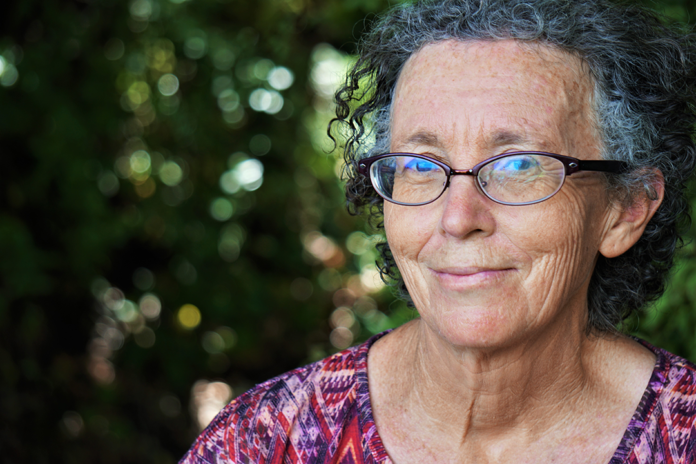While many people don’t start planning or thinking what they will do as they get older, eventually every does and should. This page will help you jumpstart that process by identifying and explaining the type of planning and activities that most seniors find helpful or downright required at some point. Once you decide what you want to work on, we’ll provide information and resources to help. So read on, explore. Figure out what’s most important to you now and then let’s get started with your basic action plan.
Starting Your Action Plan
Creating a basic action plan is a great way to achieve your goals as you grow older. And it can be simple to do. Just identify the things you want to accomplish or should do, and then prioritize them in order. That’s it – that’s a plan! After you have identified things you want and need to do, all you have to do is work on them.
First, let’s identify your areas of interest from our list below. Everyone has different interests and priorities, so you need to choose the ones that speak to you right now. Look at the list below and write down the ones that are most important to you. If you can think of things that are not on the list, but important to you – put them on the list too. Next prioritize the items you have written down. Then start working on the highest priority tasks, checking them off as you go. Next thing you know, you will be making progress towards “Getting Your Act Together” and feeling better about the future.
Financial Planning
- Social Security – estimating your social security income
- Savings & Investing – estimating your savings/investment income
- Expenses – estimating your expenses after retirement
- Budgeting – creating a budget based on your likely income
- Improving Your Budget – how to improve an unsatisfactory budget
- Practice – practice living on your budget before you retire
Health
- What is Medicaid and Medicare
- What Medicare Covers and What it Doesn\\\’t
- Medicare Supplemental Insurance
- Why You Need To Get A Physical Now
- Exercise
- Diet
- How Socializing Helps You Live Longer
Mental Health
- Dealing with Declining Health
- Dealing with Death and Grief
- Resources For Help
- What Makes You Happy?
- Creating A Bucket List
Socializing
- Social Planning
- Improving Relationships
- Talking To Your Family
- Single and Dating
- Growing Your Network
Working After Traditional Retirement
- Dream Jobs
- Mentoring
- Volunteering
- Going Back To School
End Of Life Planning
- Wills & Trusts
- Power of Attorney
- Medical Power Of Attorney
- Asset Mapping
- Digital Data & Passwords
- Family Tree/Geneology
- Photos
- Heirlooms
- Housing
- Caregivers
- Assisted Living
- Funeral Planning
- Last Wishes/Gifts
Having Trouble Deciding What to Put In Your Action Plan, or What To Do First? Check Out Our Recommended Action Plan Below…
Here are the 10 things we think most people should work on first. Knock these out, and you are well on your way to being prepared for your golden years….
1. Go Get A Complete Physical and Blood Work
There are 3 good reasons to do this first. First, if you have any medical issues that need immediate attention – it’s better to know that now and start dealing with those issues. Second, once you know your medical condition, you’ll have removed one of the most important unknowns you have as you get older. And third, you absolutely need to objectively estimate how long you will live to create a viable financial plan later.
You cannot do plan your retirement without knowing something about your physical condition and outlook. Knowing your medical condition and overall life expectancy will also give you a good sense of how fast you need to accomplish certain items in your Action Plan.
2. Estimate Your Life Expectancy
Sounds a bit morbid, but we can’t plan for your future without knowing how long you will likely live. To do this, you will have to be completely honest with yourself. If you have medical issues or behaviors that will make it tougher to reach the average lifespan, then you should objectively estimate that your lifespan is a lower number. If you are healthy and have a family history of longevity, then you should choose a higher number. To see the latest Life Expectancy Charts from the US CDS, click on the button below. Read over the information you find there and then come up with the age you are mostly likely to live to. For most people, this will be around 80 years old. But for some it could be considerably less if you have medical issues or a family history of premature death.
3. Go To An Attorney, And Set Up a Will or Trust.
Most people put this off until its too late, and its one of the most difficult things for your family and friends to deal with after you are gone. Without a will or trust, all of your assets and possessions might be unavailable to your family until they go through an arduous and costly probate system. So do yourself and your loved ones by getting this one thing done now. You can always change it later, but there is great peace of mind knowing that you have this one item completed on your Plan and your family will not have to face certain troubles.
4. Identify Who Will Be The Executor of Your Will, and Who You Will Give Medical Power of Attorney To
This is part of #3 above, but we suggest you actually talk to these people before you are setting up your will/trust with an attorney. They will be the people making sure your last wishes are carried out, and they will be the ones making decisions with your doctors if you are too sick to communicate or incapacitiated. Pretty heavy responsibilities to be sure, but better to assign these to the right people now instead of leaving it all to chance. Often, the exact circumstances that arise may not be clearly spelled out in a will or trust, so having prior conversations with someone will allow these people to make better decisions inline with what you would have wanted. Look for local attorneys that specialize in Wills and Living Trusts. They will also be able to help you with Financial and Medical Power of Attorney documents. The average cost of Living Trust, Will and Power of Attorneys is about $1,500 – $2,000.
5. Start Financially Planning For Retirement
After you get #1 thru #4 done, you can start planning for Retirement. Retirement planning consists of 5 important elements, and you should make progress on all of them simultaneously: financial planning, getting physically active, learning about and eating healthier, investing in your personal relationships, and start working on your bucket list. Its never to early to start financial planning because when you reach a point where you are unable to find work, or can no longer physically or mentally work – you will then have to live on a fixed income from your income sources. For most people, this boils down to 2 things: Social Security and Savings. So to start, set up an account online with Social Security and see what your expected monthly income will be once your retire. Then figure out what your savings, investments, insurances, etc. will allow you to withdraw or earn, and add that to your likely social security income to get an estimated monthly income. If that first pass monthly income looks below 80% of what you make now, then you have some serious planning to get started on now. Saving more now or identifying a lower cost lifestyle when you retire may be needed. Retirement planning cannot be covered here – but we provide a lot of great information about financial retirement planning under Finances in the main menu on our home page.
6. Get Physically Active
Many of us have led a sedimentary lifestyle, working in an office hovering over a computer for 8 hours a day, 5 days a week. This type of lifestyle is a proven killer and the best way to improve our longevity is to get up and get out and start moving. Later, if you feel motivated, you can research and choose activities that give you the absolute most bang-for-the buck in fitness health per minute. But for now, choose something physical that you enjoy doing – even if it’s just walking regularly. If you have a hobby or sport that makes your heart beat fast, then make sure you are doing it 2 – 3 times per week, every week. If you start early enough, you will retain a great deal of muscle mass and strength into old age. After age 55, you will lose 15% of your muscle mass every year unless you exercise regularly. Preserving your physical ability to do things has positive ramifications for your golden years such as a wider range of activities you can do, a better, happier mental outlook, lower medical expenses, more friends, and a more rewarding interesting life. So start get up and get out there and figure out what activity is right for you. Click below to review best exercises for seniors at the National Council on Aging.
7. Eat Healthy (most of the time)
Eating healthy sounds fairly straightforward and easy, but it requires 3 things: learning about diet and health, investigating what foods you buy , and actively managing your diet to ensure you are eating healthy most of the time. Like exercise, diet has a large impact on your longevity and the sooner you move to a semi-healthy or healthy diet, the more likely you are to have a long and happy life. Eating healthy is not as easy as it once was. Food manufacturers and restaurants often hide the exact ingredients that their products incorporate. So you have to develop skills to investigate and learn what you are eating, and preferably before you eat it! We offer a lot of up-to-date information on diet, healthy eating, trends and recipes under Food in our main menu on the home page, but here is a good site to understand what you should be eating on a daily and weekly basis.
8. Invest Time & Energy In Your Relationships
Now is the time to make up for lost time with your most important relationships – with your spouse/partner, with your family, with your relatives and with your close friends. While we are raising children, focused on our career, or building a business, we often sacrifice or delay investing time and effort in our social relationships. But as we age, relationships we have grow more important and it may become harder to make new relationships. All too often, a good friend or family member passes away before we got a chance to tell them how much they meant to us, or before we had a chance to do the things we always dreamed of doing. Planning activities specifically aimed at improving our relationships is a great way to get back on track with those we love and cherish. One way to do this is to list all of your friends and family, and make sure you are visiting and talking with them on a regular basis. Last but not least, if you are married or in a long-term relationship, now is the time to work to improve it. If you truly want to spend the rest of your life with this one person, then make plans to spend the time and energy to improve that relationship.
9. Start Creating Your Personal Bucket List
Many of us dream of doing the things we have always wanted to do after we retire. But you may not have to wait. Writing down the things we want to do before we get too old is a great first step towards happiness and retirement planning. By planning, we may even find that we don’t want to wait until we retire to visit our long-lost relatives, take that dream vacation, learn how to play the guitar or go back to college. Whatever your dreams and passions are, it helps to list them and prioritize them – and then start integrating them into your annual calendar. Compare them with your spouse or partner, and combine them with your closest friends or family. By combining relationship building with bucket list events, you will be accomplishing more towards a rewarding and fulfilling life.
10. Create An Effective Reward System
Planning for retirement isn’t easy, and as a human, we have difficulty with change. So why not combine your most difficult goals with your most wonderful dreams to create a personal reward system? Visit 5 family members, and give yourself a spa day; lose 10 lbs. and buy that ticket to the playoffs; exercise 3 times a week for 3 months and book that cruise to the Bahamas. By combining your Retirement planning tasks with your bucket lists (and other favorite pastimes), you can create a reward system that ultimately has you accomplishing more than relying on guilt or necessity. Everyone loves to get a reward. Set yours up now and start earning them to jumpstart your golden years.









